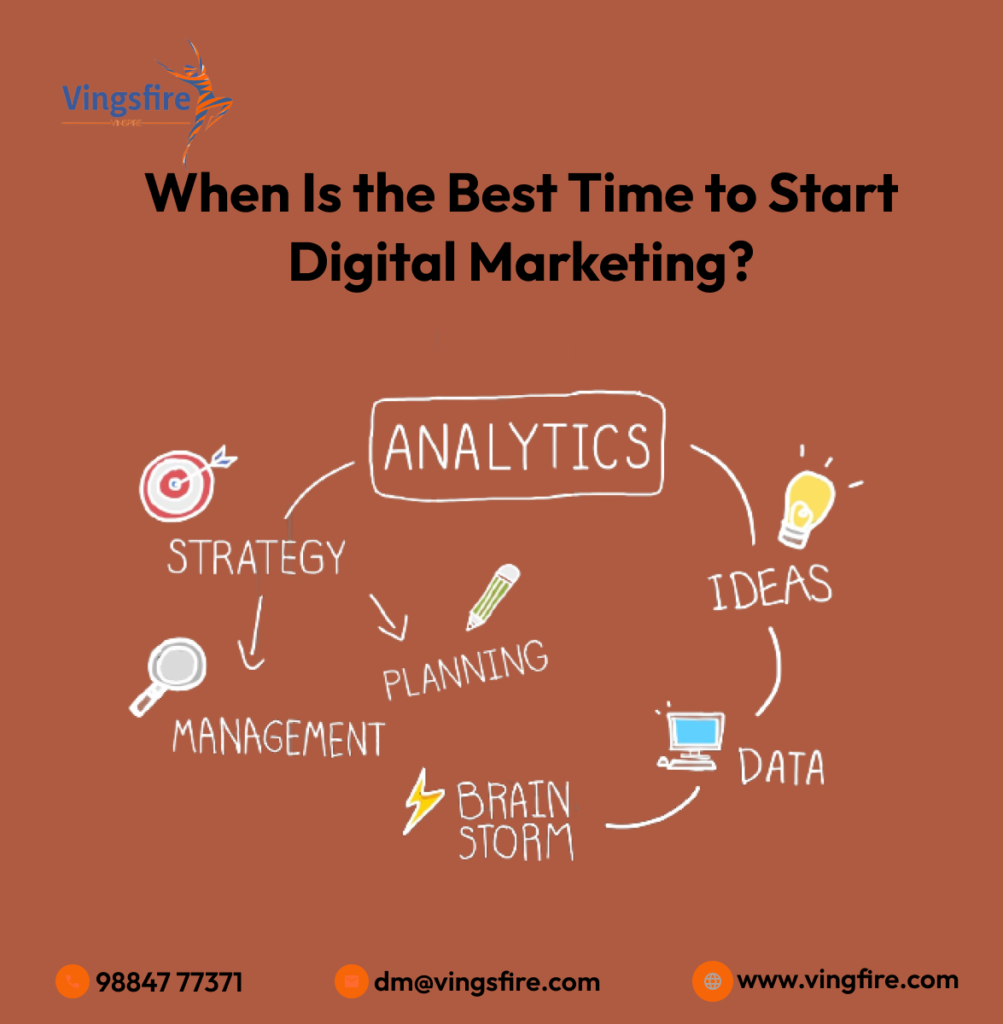
In today’s fast-paced digital age, businesses are constantly seeking ways to stay ahead of the curve and reach their target audience effectively. With the advent of digital marketing, the landscape of advertising and promotion has undergone a significant transformation. From social media campaigns to search engine optimization (SEO) strategies, digital marketing offers a plethora of avenues for businesses to connect with their customers like never before.
But amidst the myriad of options available, a common question arises: When is the best time to start digital marketings?
Is there a specific moment when businesses should dive into the realm of online promotion, or is it more about seizing opportunities as they arise? Let’s delve deeper into this question and explore the factors that can influence the timing of embarking on a digital marketing journey.
Market Readiness:
One crucial aspect to consider is the readiness of your target market. Are your potential customers active online? Do they engage with digital platforms regularly? Conducting market research to understand the digital behavior of your audience can provide valuable insights into whether the time is right to invest in digital marketing initiatives.
Competitive Landscape:
Analyzing the digital presence of your competitors can also shed light on the optimal timing. If your competitors are already leveraging digital channels effectively, it might be imperative for you to join the fray sooner rather than later to avoid falling behind.
Business Goals and Objectives:
The timing of digital marketing endeavors should align with your business goals and objectives. Are you looking to increase brand awareness, drive website traffic, or boost sales? Defining clear objectives will help determine when to kickstart your digital marketing efforts and which strategies to prioritize.
Seasonal Trends:
Certain industries experience fluctuations in demand based on seasonal trends. For instance, retail businesses often witness a surge in sales during holiday seasons like Christmas or Black Friday. Capitalizing on these peak periods through targeted digital marketing campaigns can yield significant results.
Product or Service Launches:
If you’re introducing a new product or service to the market, leveraging digital marketing from the outset can generate buzz and anticipation among your target audience. Building anticipation through teasers, sneak peeks, and pre-launch promotions can create momentum leading up to the launch date.
Budget and Resources:
Another factor to consider is your budget and resource allocation for digital marketings activities. While it’s essential to invest in digital marketing to stay competitive, it’s equally important to ensure that you have the necessary funds and manpower to execute your strategies effectively.
Technological Advancements:
The evolution of technology continually shapes the digital marketings landscape. Keeping abreast of emerging trends and advancements can help you capitalize on new opportunities as they arise. Whether it’s leveraging artificial intelligence for personalized marketing or adopting immersive technologies like virtual reality, staying ahead of the curve can give you a competitive edge.
Customer Lifecycle Stages:
Understanding where your customers are in their journey can influence the timing of your digital marketings efforts. Are they in the awareness stage, considering their options, or ready to make a purchase decision? Tailoring your digital marketing strategies to cater to each stage of the customer lifecycle can maximize engagement and conversions.
Data Analysis and Insights:
Leveraging data analytics tools can provide valuable insights into consumer behavior and preferences. By analyzing data such as website traffic, conversion rates, and social media engagement, you can identify opportune moments to ramp up your digital marketings efforts and capitalize on emerging trends.
Adaptability and Agility:
In the dynamic world of digital marketings, being adaptable and agile is paramount. The best time to start digital marketing may not always be predetermined but rather a continuous process of monitoring, analyzing, and adjusting strategies based on evolving market dynamics and consumer trends.
In conclusion, the best time to start digital marketing is a multifaceted consideration that encompasses market readiness, competitive landscape, business objectives, seasonal trends, budget allocation, technological advancements, customer lifecycle stages, data analysis, and adaptability. While there may not be a one-size-fits-all answer, staying informed, proactive, and responsive to market changes can position your business for success in the digital realm. So, don’t wait for the perfect moment – seize the opportunities that digital marketings presents and embark on your journey towards reaching and engaging your target audience effectively.


